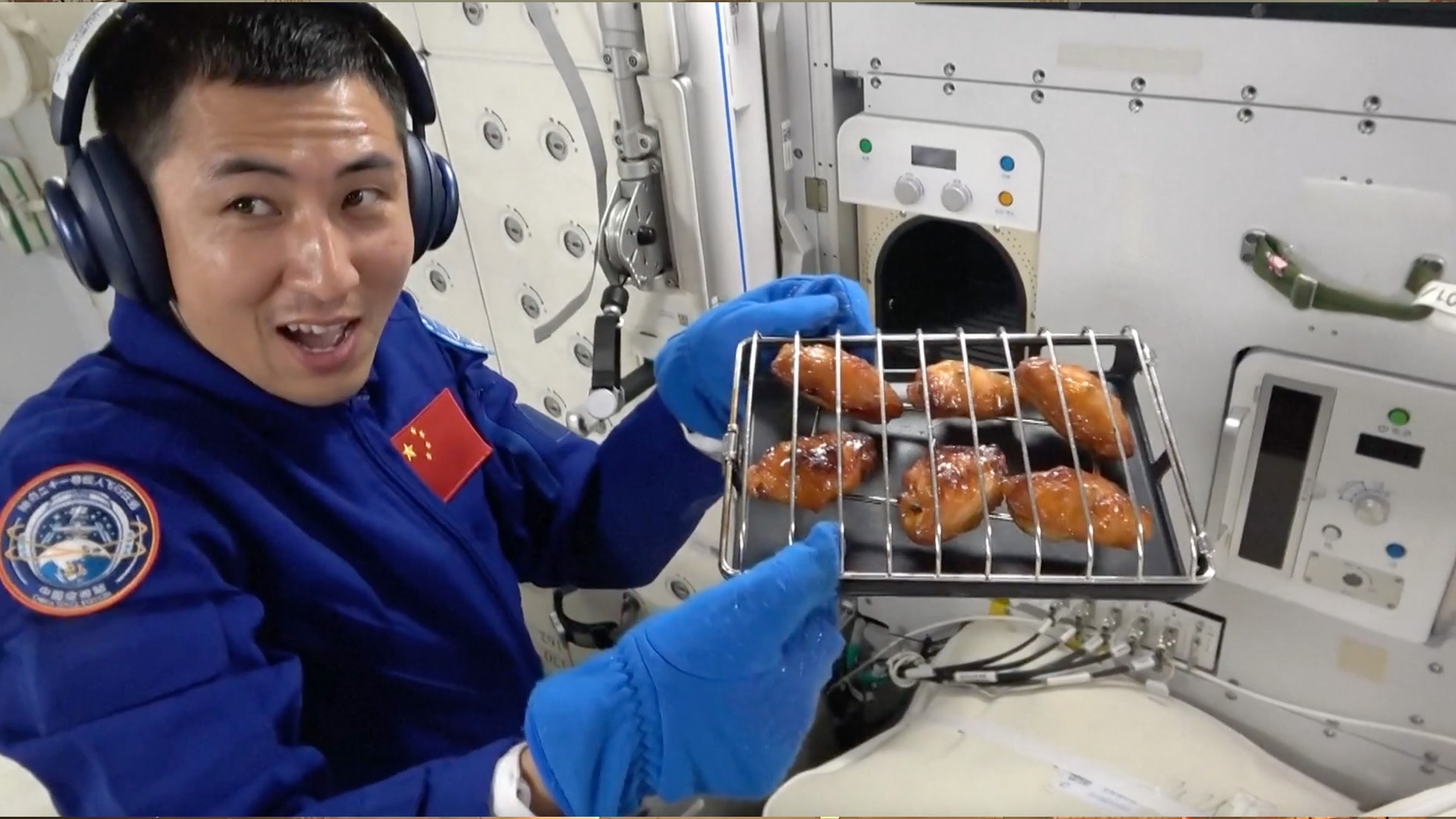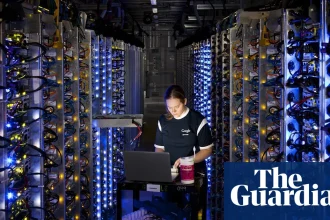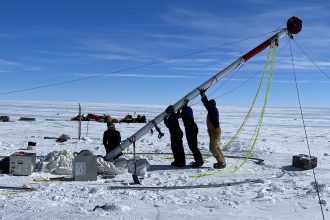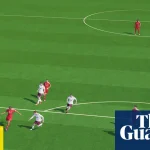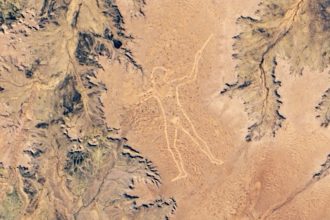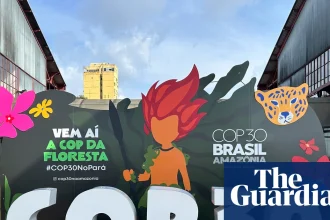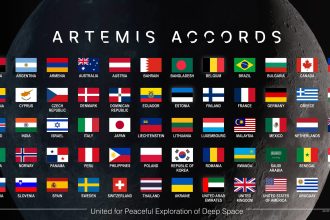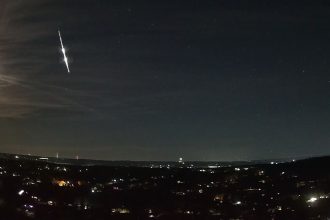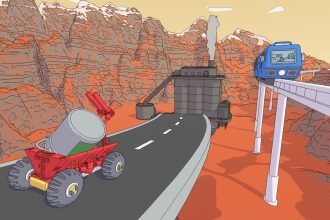What do we do when the worst impacts of climate change take hold? In this excerpt from “Sink or Swim: How the World Needs to Adapt to a Changing Climate” (Bloomsbury Sigma, 2025), author Susannah Fisher, who leads an international research program on climate adaptation at University College London, looks at the future of human migration. In it, she argues that as parts of the planet become uninhabitable, hard choices will need to be made to manage the movement of people — be it through organized relocation or sudden displacement. But what will these choices look like 45 years in the future?
Imagine it is 2070 and the world has battened down the hatches. People are moving in large numbers away from storms, droughts, floods and fires usually within their own countries and ending up in large displaced-people camps. The camps are in the middle of nowhere in some cases, or in huge areas of urban sprawl in others, with few amenities or avenues for support. The people struggle to make new lives but there is little left to go back for.
You may like
Those who try to move further hit up against heavily fortified internal or national borders with armed patrols. The humanitarian organizations do monthly drops of food and drinking water to the worst-affected areas, and the United Nations (U.N.) teaches communities about collecting rainwater and cooling their houses — but it is not enough.
Regional agreements allow people to move locally when disasters hit, but this does not help with the slow onset changes that have made life so hard. There are now two global political alliances that go beyond national borders — people living in the habitable zone and those outside it.
The U.S. has put up a border around the southwestern states that have run out of water to keep people out. The states have turned on each other as they fight for the last flows of the Colorado River. Those living in the “nonhab” zone increasingly do not bother with the U.N. or their own governments. Instead they strategize together on how to use technology such as solar geoengineering to reinvigorate their regions.
Cities in the habitable zone continue to lack people due to demographic shifts, but the process to migrate there is extensive and the local communities do not welcome “non-hab” applications.
Or another set of choices. A hurricane hits the coast of a small Caribbean country. The government had everything prepared — the early warning systems sounded and people went to the shelters before the storm ravaged the island. The day after the hurricane, the rapid attribution study is published and certified by the U.N., showing that the hurricane winds were made much more severe due to climate change.
The government issues a set of climate passports and people are able to choose from a set of countries to host them. These countries include historical carbon emitters that accept their responsibility for worsening the hurricane.
People can claim relocation grants from the fossil fuel companies, which were forced to pay out after a groundbreaking legal case. The storm was a scary one, and many people choose to go, taking the chance of a better life over the risk of another storm next month. The move might be temporary or longer-term but it buys people time to recover and continue their businesses, education or training while the rebuilding goes on.
You may like
Flooding risk in Bangladesh is increasing due to climate change. (Image credit: Michael Hall/Getty Images)
Over in Bangladesh, communities living in the delta are being hit again and again by cyclones and flooding. A young family decides they want more stability for the education of their children. They wanted to go to Dhaka but have heard it is crowded and still has flooding most monsoons. Instead, they apply to the U.N. displacement facility, where they hear about the secondary cities that have space for new migrants. They weigh up proximity to their family, the educational opportunities and the retraining on offer and decide on a small city with a vibrant cultural life. They enrol on a scheme of training for a new life in their chosen home. They are able to return regularly to family in their old neighborhood and live between the two locations.
In the U.K., a community of 400 families from a coastal area in Norfolk are settling into their new homes in the Peak District. The whole community, mostly low-income families with strong ties, were moved from a location where they were constantly at risk from floodwaters, storms and seeping damp into their houses. Many did not want to go, but a wilderness company wanted to buy their land to set up flooding tourism and adventure tours.
They applied to the government relocation scheme and developed a plan, mapping out what was important to them and how they would like to spend the money available. The community negotiated with the government agencies and finally a plan was agreed for all residents. Some are happy with the move, others have moved back close to the old land and take people on canoes past their old flooded homes.
In a small island developing state, the government has invested heavily in floating platforms and reclaiming land from the sea. This works for some islanders who have the money to buy the new properties and embrace the new way of life. They work hard on bringing new forms of tourism to the area through low-carbon transportation. Some islanders were not able to wait and moved away, with the support of the U.N. displacement facility.
These islanders send money back and remain citizens of their island home as well as their new country. They come back for cultural festivals and see themselves as belonging to the island as well as making new connections elsewhere. They call the country a “network nation” — linked to the sea and to many new areas of land and opportunity like spokes of a wheel.
These thought experiments raise vital questions that we as individuals, as communities and as voters need to consider. There are also choices for citizens in countries that could host migrants, and governments considering their interests in the regional or international system.
There is no single answer, and many choices have high political costs in the short term, but we will need to face up to these hard choices to find a way of living well under climate change.
From Sink or Swim: How the world needs to adapt to a changing climate by Susannah Fisher, on sale November 4 from Bloomsbury Publishing. Copyright © 2025 by Susannah Fisher. All rights reserved.



